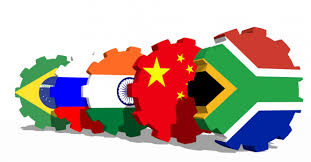Risky assets had rallied throughout April, thanks to slowing-down of the Covid-19 outbreaks in rich countries. However, this is a very ethnocentric view, because nowadays 60% of the world output is produced by Developing Nations, in most of which corona is only now reaching take-off phase. Russia, Brazil, Iran come to mind first, but the epidemic is endemic in EM. Foreign Policy magazine addresses this distorted perspective. Nor global recovery is sustainable unless Developing nations can best Covid-19 with lasting damage to their workforce and economic fundamentals. The signs are ominous. There is no proof that Developing Nations will not suffer a second wave because of underfunded and creaky health systems, the decisions of ill-informed strong men, or simply because their foreign debt burdens are so crushing that once the epidemic is under control, the economies will have no wherewithal left to service these.
PA Turkey produces excerpts from this insightful article, which also touches on Turkey’s plight. As President Erdogan announces the opening of malls and factories as early as 11 May, even though there has been no national testing for asymptomatic patients, the diagnosis of the article are worth keeping in mind.
The story of the coronavirus has so far been told mostly from the perspective of rich countries, but its harshest effects will still likely be felt by the world’s poor. Africa’s cases rose by nearly half in a single week in April, while India’s numbers continue to tick up. Some of the world’s worst outbreaks are taking place in nations such as Brazil, Ecuador, and Turkey. The pandemic’s epicenter could easily return to Asia or move onward to Latin America.
Beyond this public health emergency lies a devastating economic threat. Only bold action from the U.S. Federal Reserve has staved off what would almost certainly have been a rolling series of financial crises for emerging markets in the aftermath of March’s record $83 billion in capital flight. But the pandemic now threatens a more profound shift, bringing an end to the very idea of emerging markets—namely fast-growing poorer countries able to make rapid strides towards development, becoming the darlings of financial investors in the process.
Richer countries are only now puzzling through how to restart economic activity while avoiding further waves of infections through mass testing and contact tracing. A task of this complexity will be hard even for countries such as Denmark and Singapore. Nations with limited state capacity and patchy health systems will find it nearly impossible. Further outbreaks are therefore likely, and with them will come a destructive cycle of reopenings and lockdowns.
Even if a public health calamity can somehow be avoided, developing nations must now deal with two further pressing challenges: the short-term threat of recession and financial panic, and then the longer-term problem of sustained weaker economic performance.
almost no emerging markets have the resources to fund the level of emergency fiscal support, such as income guarantees and small-business grants, seen in countries such as the United States and Britain. Some will cut back in other areas, as Thailand did in April by reducing defense spending, or seek emergency loans from bodies such as the World Bank. But countries such as India or Indonesia have little fiscal headroom for huge increases in spending, and are also not able to ramp up borrowing as richer countries have done. Nor can their central banks risk adventurous monetary policy, for fear of spooking already anxious investors, prompting further capital flight and currency depreciation.
Most alarming of all is what happens if the present period of market buoyancy in advanced economies collapses. Global markets have risen over recent weeks, in part because of what investment strategist Mohamed El-Erian has called a “massive cognitive failure” to appreciate the severity of the pandemic, much of it powered by blind faith that the Fed will continue to pump in round after round of new stimulus.
Emerging markets therefore find themselves reliant on the largesse of Fed Chairman Jerome Powell and his willingness to keep money flowing. Emerging markets therefore find themselves reliant on the largesse of Fed Chairman Jerome Powell and his willingness to keep money flowing. This has been best seen through new swap lines—meaning guaranteed access to U.S. dollars— for countries such as Brazil, Mexico, and South Korea. How long Powell will be willing or able to continue his run of recent balance sheet expansion is anyone’s guess. But if he gives even a hint of running out of ammunition, the flight from developing economies will be rapid and destructive.
This risk is compounded by a further worry, namely how to fund poorer countries’ precarious new stocks of debt. The 30 largest emerging nations owed $73 trillion last year, an IOU pile that has grown by more than one-and-a-half times during a decadelong recent debt acquisition binge, according to the Bank of International Settlements, a grouping of central bankers. Those who have large quantities of debt denominated in U.S. dollars, like Argentina, are especially vulnerable if the U.S. dollar continues to shoot up—as it did in March when panicked investors fled to the relative safety of dollar assets.
To read the entire article, click here
You can follow our English language YouTube videos @ REAL TURKEY: https://www.youtube.com/channel/UCKpFJB4GFiNkhmpVZQ_d9Rg
And content at Twitter: @AtillaEng
Facebook: Real Turkey Channel: https://www.facebook.com/realturkeychannel/
